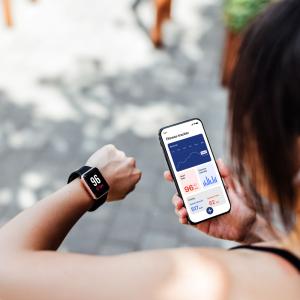
A small device implanted in her heart meant Arlene could stop taking blood thinners.
Photo: NYU Langone Staff
Arlene had been successfully treated for atrial fibrillation at NYU Langone’s Heart Rhythm Center, but one lingering side effect remained: like most people with A-fib, as the condition is commonly known, she was at an increased risk of blood clots forming in the heart, which could lead to stroke.
Her electrophysiologist, Larry A. Chinitz, MD, prescribed blood thinners to reduce the chance of clotting. But the medication’s side effects, including rectal bleeding, were more than she could bear.
“It became a serious problem,” Arlene says. “I lost so much blood, and I was so weak that I needed weekly iron infusions.”
Arlene needed another option. Dr. Chinitz recommended she receive a device that seals off the part of the heart where blood clots tend to form, a pocket in the upper chamber called the left atrial appendage. Arlene was nervous, but she knew that Dr. Chinitz was one of the most experienced doctors at placing the left atrial appendage occlusion device (LAAOD), one of which is known by the brand name Watchman.
“The nurses are beyond-belief amazing. They're kind, caring, and concerned, and they go out of their way to be there for you.”—Arlene, Age 71
In a virtually pain-free procedure, Dr. Chinitz used a catheter advanced through a vein in the groin to reach the left atrial appendage. Using small surgical instruments, he placed the umbrella-shaped device over the appendage. Over time, tissue grows over the device, completely sealing it off. Two months after the procedure, Arlene was able to stop taking blood thinners.
“I knew I was under the care of the right doctor, and now I’m able to go about life like a normal person,” Arlene says. “I went from a sickly person to a well person.”

